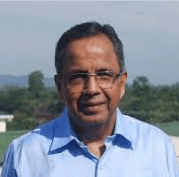 The IUIS-IIS-FIMSA-Immuno-Jaipur Basic and Advanced Translation Immunology Course co-sponsored by the International Union of Immunological Societies (IUIS), the Indian Immunology Society (IIS) and Federation of Immunological Societies of Asia-Oceania (FIMSA) took place between the 12-16th October in Jaipur, India
The IUIS-IIS-FIMSA-Immuno-Jaipur Basic and Advanced Translation Immunology Course co-sponsored by the International Union of Immunological Societies (IUIS), the Indian Immunology Society (IIS) and Federation of Immunological Societies of Asia-Oceania (FIMSA) took place between the 12-16th October in Jaipur, India
This course brought together experts in the field of immunology from across the globe to interact and discuss with the young researchers and clinicians. The course included five days of lectures on various themes and provided opportunities to young participants to showcase their work through oral and poster presentations. The course attracted over 100 participants with a mixed background that included academic, industry and clinical researchers from India as well as abroad. This course also served as a valuable networking platform and initiated further cooperation among various immunological societies associated with the program.
The first day of the course was registration and Inauguration of the 5 day course. The course started with an inaugural address by Dr. Narinder Mehra [Course convener], Dr. Sunil K. Arora [IIS President], Dr. Mohan L. Swarankar [MGUMST Chancellor], Dr. Raja Babu Panwar [RHUS Vice Chancellor], Dr. Vinod Paul [Member], Niti Aayog [Govt. of India representative], Dr. Shubhada V. Chiplunkar [Course Convener] and Dr. Gaurav Sharma [Course Secretary].
The opening session was addressed by Dr. Narinder Mehra, who described the background and genesis of the IUIS-IIS-FIMSA Immuno-Jaipur course followed by detailing the growth of the Indian Immunological Society and birth of FIMSA . This was followed by a Scientific lecture from Prof.
Dieter Kabelitz, University of Kiel, Germany, who underscored the strategies to apply γδ T cells for immunotherapy and described about six different strategies to improve the efficacy of γδ T cell therapy. The strategies included: (1) the use of TGF-β, that induces IL-9 production in γδ T cells without the help of IL-4 and enhances migratory and cytotoxicity potential of γδ T cells; (2) construction of bispecific antibody to increase the efficacy of γδ T cells; (3) agonistic anti -butyrophilin3A (BTN3A, CD277) antibody, as BTN3A is required for γδ T cell activation; (4) the use of zoledronic acid and IL-2 to induce γδ T cells; (5) vitamin C mediated enhancement of γδ T cell effector functions and (6) neutralization of IL-17 produced by intratumoral γδ T cells that can prevent pro-tumorogenic role of these cells.
Article by Rushikesh Patil, Dimpu Gogoi and Mr. Naythan D’Cunha,


